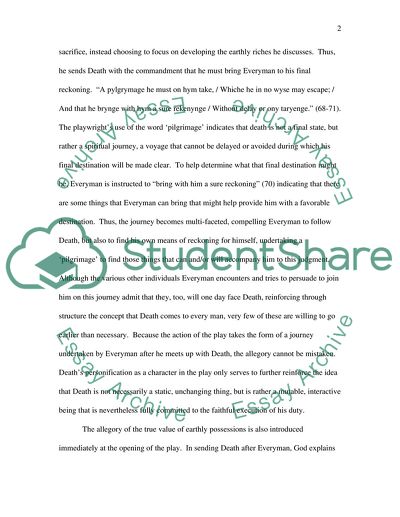Cite this document
(“Major Allegorical Themes in Everyman Essay Example | Topics and Well Written Essays - 1500 words”, n.d.)
Major Allegorical Themes in Everyman Essay Example | Topics and Well Written Essays - 1500 words. Retrieved from https://studentshare.org/literature/1536254-the-major-allegorical-themes-emerging-from-everyman-to-writer-1532
Major Allegorical Themes in Everyman Essay Example | Topics and Well Written Essays - 1500 words. Retrieved from https://studentshare.org/literature/1536254-the-major-allegorical-themes-emerging-from-everyman-to-writer-1532
(Major Allegorical Themes in Everyman Essay Example | Topics and Well Written Essays - 1500 Words)
Major Allegorical Themes in Everyman Essay Example | Topics and Well Written Essays - 1500 Words. https://studentshare.org/literature/1536254-the-major-allegorical-themes-emerging-from-everyman-to-writer-1532.
Major Allegorical Themes in Everyman Essay Example | Topics and Well Written Essays - 1500 Words. https://studentshare.org/literature/1536254-the-major-allegorical-themes-emerging-from-everyman-to-writer-1532.
“Major Allegorical Themes in Everyman Essay Example | Topics and Well Written Essays - 1500 Words”, n.d. https://studentshare.org/literature/1536254-the-major-allegorical-themes-emerging-from-everyman-to-writer-1532.


